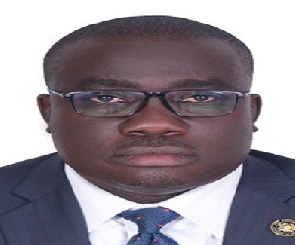The majority in parliament has described the Independent Power Production contract signed under the supervision of John Dramani Mahama as part of Ghana’s current economic hardship.
The Member of Parliament for the Dormaa East Constituency, representing the Majority in an interview said the agreements which were signed under the tenure of ex-president John Dramani Mahama between 2012 and 2016 pushed Ghana’s economy to the brink of collapse with huge financial losses to the state.
He said that over GH₵12 billion was paid as capacity charges to Independent Power Producers (IPPs) between 2017 and 2021 which he described as an open secret that was revealed by the World Bank Country Director, Pierre Frank Laporte, and cannot be political meddling as claimed by the NDC.
Former President John Dramani Mahama was mentioned by the World Bank for Ghana’s current ailing economy due to the bad Power Purchase Agreements (PPAs).
According to the World Bank, some of the country’s PPAs with Independent Power Producers (IPPs) signed under Mahama administration are too expensive and wrong.
The World Bank expressed concerns that they needed to be reviewed urgently.
"I will be recalled that the Mahama-led National Democratic Congress (NDC) administration signed Take-or-Pay contracts that compelled Ghana to pay GH¢12 billion for power that was not consumed. The Finance Minister, Ken Ofori-Atta managed to be resourceful from 2017 to 2021 to meet Ghana’s financial commitments to IPPs, ensuring continued power supply without the ‘dumsor’ experienced in the Mahama administration. However, the PPA appears to be now biting the country’s economy harder.
The World Bank has therefore called for the review of some of Ghana’s PPAs to revive its economy under the International Monetary Fund (IMF) bailout.
The Country Director of the World Bank responsible for Ghana, Sierra Leone and Liberia, Pierre Frank Laporte, indicated that many of the country’s PPAs for power generation were signed at the wrong rate and prices, saying that Ghana is paying more for power than it should be, even for electricity not used, due to the PPA’s terms.
“In the aspect of Ghana, those contracts you signed with the PPA are too expensive. The kind of PPA you signed it means, Ghana is paying for electricity not in used through doubling of capacity,” he told Accra based Joy Fm on Thursday June 2, 2023 He added “The fact is, in the last few years, Ghana entered into some PPAs that were wrong. These types, in our view, were at the wrong rate and at the wrong prices and today you’re paying duly for it. And today the country is being billed for many of these wrong PPAs.”
He called on government to urgently restructure some of these contracts.
“I know that the government has started some talks with the IPPs to renegotiate some of these PPAs,” he said.
The energy sector debt still poses a threat to Ghana’s economy, with the renegotiation of contracts seen as a solution.
Ghana has an installed power capacity of about 5,000 megawatts and dependable capacity of about 4,700MW with the all-time high peak demand of 2,700MW.
The Energy Sector Reform Programme (ESRP) has been crafted to address the issues in the energy sector and convert purchase agreements from Take-or-Pay to Take-and-Pay, which would end the payment of excess capacity. The government has started talks with IPPs to renegotiate some of these PPAs.
Paul Twum Barimah commended the World Bank representative in Ghana for boldly pointing out the anomaly to the ex-president and exposing the rot perpetrated during the tenure of the NDC in government.
Experts have revealed that the wasteful expenditures in the energy sector are one of the main causes of increases in end-user electricity tariffs, imposing hardships on Ghanaians. The IPPs make Ghana uncompetitive for manufacturing, thus holding back Ghana’s industrialization and job-creation agenda. These wasteful payments are putting pressure on Ghana’s foreign currency reserves and on the exchange rate.
The Member of Parliament for Dormaa East, Paul Apraku Twum Barimah is further calling on government to prosecute and sanction all signatories who negotiated the IPPS on behalf of the government of Ghana for causing financial loss to the state.
General News of Tuesday, 13 June 2023
Source: Dieu Media Ghana













